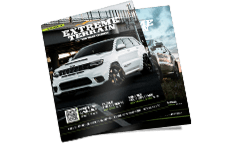Understanding Aftermarket Fuel System Components for 2004-2015 Nissan Titan
The Role and Importance of Fuel System Parts
The fuel system of any vehicle is instrumental in its overall performance, but this is especially true for models like the 2004-2015 Nissan Titan. Choosing high-quality aftermarket parts for its fuel system necessitates a comprehensive understanding of the key components, their roles, compatibility concerns and, importantly, their connection with other systems in these Nissan titan models.Key Components of the Fuel System
A principal player here is the fuel pump, usually made of high-strength steel or plastic composites, manufactured via plastic injection molding or metalworking. In the case of these Nissan Titan models, its function is dual: pressures the fuel to injectors and supplies the requisite volume of fuel to the engine. Similarly essential is the fuel filter; typically made from filtrating materials like cellulose, synthetic compounds, or even treated paper. Its purpose is to sift impurities before fuel reaches engine, lowering maintenance needs and extending vehicle longevity.Compatibility and Manufacturing Concerns
The material composition reflects the need for toughness to withstand constant exposure to corrosive fuel types, and its manufacture involves precision welding and molding. Fuel injectors, constructed typically from stainless steel to avoid corrosion and made via precision cutting and forming processes, ensure accurate fuel delivery at the appropriate engine cycle moment. Compatibility becomes a crucial factor here, as injectors must match the engine’s pressure and volume demands to guarantee optimal running conditions.Quality Standards of Aftermarket Parts
The quality of these aftermarket fuel system parts for 2004-2015 Nissan Titan is underpinned by rigorous quality standards such as ISO 9001 or TS 16949, ensuring their precision-engineered performance and longevity. Equally, they must meet specific emission standards set by the EPA. When dealing with aftermarket parts, it’s crucial to examine certifications from recognized testing bodies to verify their meeting of these quality benchmarks.Choosing Components Based on Vehicle State
Notable here is the direct correlation between vehicle age, mileage, and operating conditions, which are key determinants when selecting components. For instance, a high-mileage Titan operating in harsh conditions may benefit from more durable components made from advanced materials. Similarly, maintenance history should be considered, as systems regularly serviced at shorter intervals might accept a broader range of aftermarket parts, due to their better overall mechanical health.Considering Adjacent Systems
One must, however, not tunnel vision exclusively on fuel system components while ignoring their interaction with adjacent systems. For example, if intending to uprate fuel delivery for performance gains, it's crucial also to adjust elements within the ignition and exhaust systems to accommodate the increased fuel volume. This wholistic approach is imperative in enhancing vehicle performance, efficiency, and safety. Making astute choices in regards to aftermarket fuel system components for models such as the 2004-2015 Nissan Titan requires a meticulous understanding of not only the parts and the specifics of the model but also the interplay amongst these and other engine systems. With that understanding in hand, equipped with components that meet the highest quality standards, enthusiasts, and automotive professionals, both can achieve optimal performance out of their Titans.Fitment Includes:
- 2004, 2005, 2006, 2007, 2008, 2009, 2010, 2011, 2012, 2013, 2014 and 2015 Nissan Titan
- LE, SE, XE, PRO-4X, S, SL, SV
*Please see product pages for any exceptions.
























